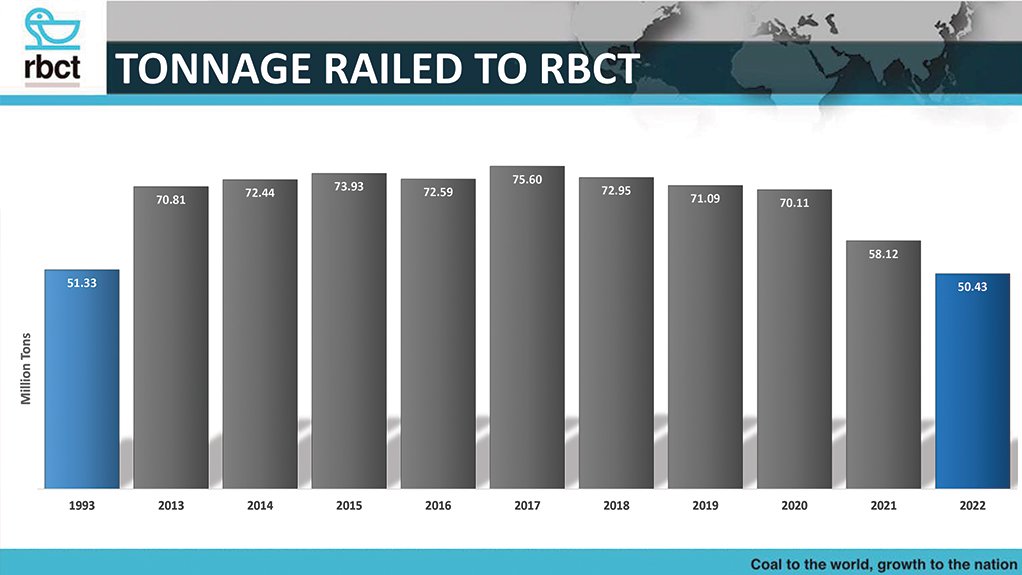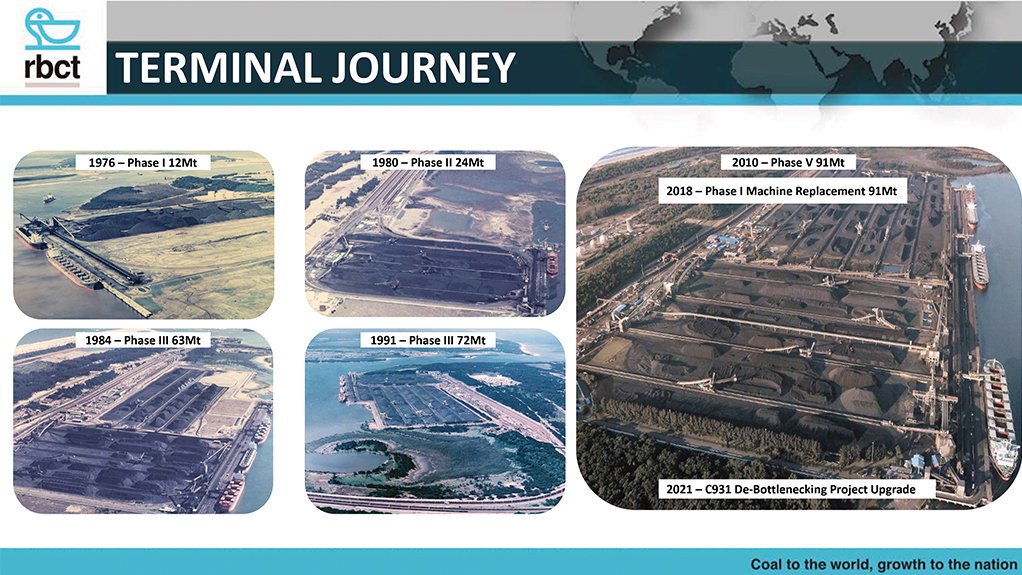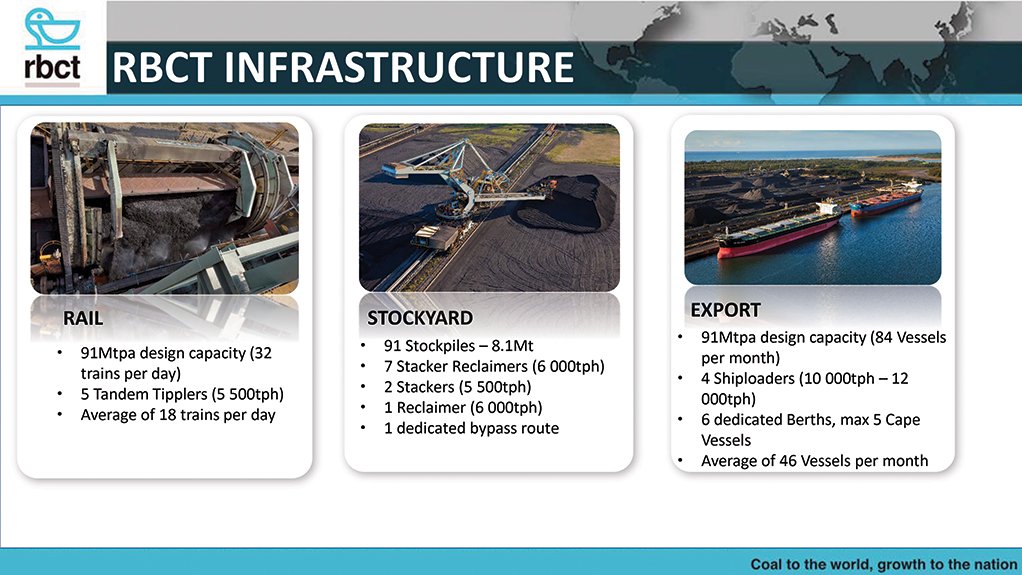JOHANNESBURG (miningweekly.com) – The number of tons of coal exported through Richards Bay Coal Terminal (RBCT) in 2022 fell to the lowest level since 1993.
A total of 50.35-million tonnes was exported from the private-sector-owned RBCT, with the public-sector-owned rail line again being severely hit by copper cable theft currently. (Also watch attached Creamer Media video.)
The collaborative security effort between the mining industry and State-owned Transnet Freight Rail that has been under way since October 2021 has not stopped RBCT from having a "very tough time right now" because of increased cable theft.
“We have been hit very badly in the last two weeks,” RBCT CEO Alan Waller told a media briefing, at which Transnet Freight Rail (TFR) said in response to Mining Weekly that an extensive programme was under way to replace copper-based wire with more composite materials, which reduces the value of the copper and results in the copper properties being destroyed during remelting.
Cable theft is predominant at night and drones are being used to monitor the rail line by more than 80 armed reaction units that patrol together with 36 drone teams, which provides early cable theft detection.
"But as we adapt, the criminals adapt," said Waller.
TFR north corridor coal line managing executive Ali Motala reported that newer, more sophisticated cable being rolled out was serving as a deterrent as less cable theft was taking place in areas where this cable had been installed.
In addition, several other security technologies were being deployed to improve monitoring and early notification.
Crime intelligence was also being intensified to improve tactical responses.
Sixty-nine coal mines rail their coal for export along the north corridor coal line to RBCT, which is not designed to take road trucks.
“Loco availability is the biggest challenge in terms of network design capacity down to actual throughput and then the other big one is cable theft,” said Waller.
“We had a terrible year in terms of the strike that lasted for two weeks at Transnet Freight Rail which affected the whole of Transnet, as well as two major derailments,” said RBCT chairperson Nosipho Damasane.
“We'll continue to work hard on efficiencies,” added Damasane.
Regarding derailments, Motala said TFR wasimplementing infrastructure condition improvement along with rail replacement, correcting the geometric rail properties and the X-raying of welds and rail metal properties.
Training programmes to improve skills and competence and route understanding by train drivers are also under way.
“For these very heavy trains we’ve also upgraded the sophistication around braking technologies so that even when there is an incident, its impact can be minimised. The incident that took place in November is by far an outlier in terms of its scale and magnitude. It is not comparable to any other incident that we’ve had on this line in the recent past,” Motala added.
Industry has now, as part of working together with Transnet, established a path aside committee that meets weekly to joinly address the technology challenges and try to make the supply chain get back to normal.
JUNIOR MINERS EXPORTING MORE COAL
The incentive put in place to drive up the junior coal miner volumes drove up last year’s junior performance at a time of low RBCT volumes, which makes that performance even more recognisable.
If junior miners achieve three-million tons, they receive a 20% rebate on the RBCT costs which is paid back to them in cash on achievement. Last year, the juniors managed to export 3.36-million tons.
“So, certainly some good momentum that has been gained in the section of the junior miners,” said Waller.
TRUCKED COAL VOLUME
Minerals Council South Africa estimates that R30-billion worth of coal did not go through Richards Bay Coal Terminal. The weighted average price for coal was R2,973/ton during the last 12 months to November 2022 and world demand was at a peak due to the energy crisis in Europe and other countries.
"We know that only about 20% of the lost tonnages were due to cable theft and electricity disruptions on the coal rail corridor. The bulk of the explanation lies with inefficiencies on rail and in the ports. This reality has prompted the Minerals Council’s board to urgently approach the Transnet Board to facilitate a joint effort to find solutions for the problems on the bulk commodity export lines. Intensive work has started at the levels of the two boards, at a managing steering committee and at technical level on the export channels for coal, chrome, iron ore and manganese,” Minerals Council chief economist Henk Langenhoven stated in a note to Mining Weekly.
EMAIL THIS ARTICLE SAVE THIS ARTICLE ARTICLE ENQUIRY
To subscribe email subscriptions@creamermedia.co.za or click here
To advertise email advertising@creamermedia.co.za or click here
















